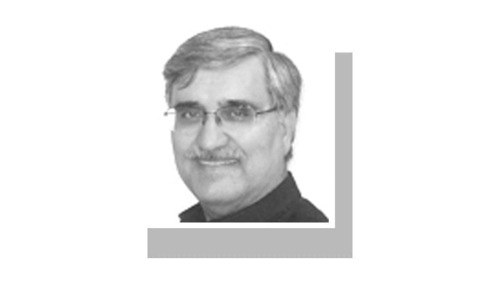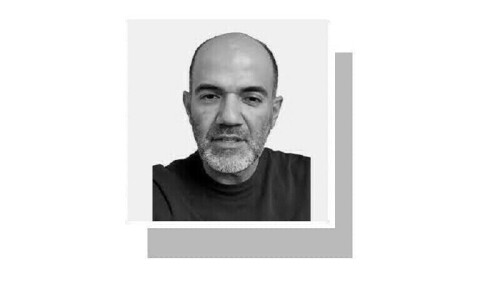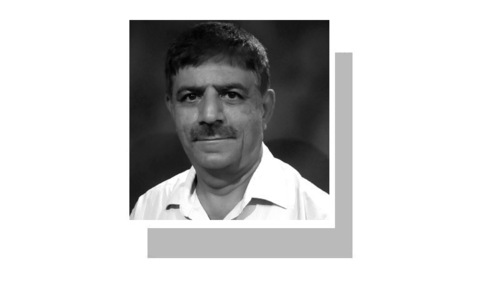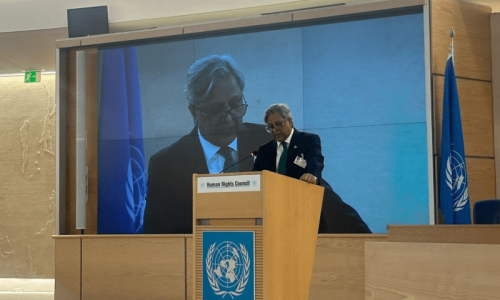These acquired unwanted ramifications aside; no one can deny the indispensable utility of democracy. It is after all, democracy, which ensures flowering of a society's hidden potential and talents.
Embodying alterations and changes necessitated by the onset of technology and the resulting institutions, democracy, first conceived at around 300 BC in ancient Greek city states such as Sparta, has come a long way. However, these changes have taken place within the given parameters with the overall structure remaining unchanged.
The changes may have been at a micro structural level but democracy at the macro structural level remains relatively unchanged since the past two millenniums, making it a time-tested system of governance.
However, like all going concerns, democracy, too, needs catalysts to keep it going. There are factors that have to fuel the engine of democracy in order to make it run. Democracy has certain prerequisites. Foremost among these is education, as only an educated mind possesses the magnanimity and intellect needed to grasp concepts such as liberty, equality, justice, law, rights and responsibilities of the state and its people.
As Jami Chandio, a research scholar and writer, explains that while it is true that there is a nexus between parliamentary government and learning, the democratic system in order to flourish needs a political and critical mass as the public sphere is its social constituency.
“In order to survive and thrive social equality needs politically-motivated and committed citizens who have their stake in its survival and efficient functioning and they are the ones who sustain the system. Democracy, by and large, is more successful in those societies where the masses are politically conscious and aware of their rights as well as of their duties,” adds Chandio.
Yet, we have to acknowledge the fact that while education is an indispensable prerequisite, it has to be complemented by other factors. Two of the most important ones are tolerance and socio-economic equality. Both actually are corollaries to each other.
While it is true that perfect socio-economic equality is a utopian dream, minimum economic inequality is needed to ensure equal allocation of opportunity among different members of society. Gaping disparity and denial of opportunity breeds unrest in society which takes the shape of class hatred, exploitation of the weak by the strong and class polarisation.
This, in turn, results in the usurpation of the rights of the less privileged, often completely disempowering them. Once we have the all-powerful haves and the totally disempowered have-nots, the former through sheer virtue of their power and pelf, ride roughshod over the latter. They deprive them of their rights as citizens, and of their due as citizens. This is a total antithesis to democracy.
Education and literacy, nonetheless, can help in strengthening and reinforcing democracy as they both harmonise and reinforce each other. Indeed, states with high literacy rates, such as Sweden, Luxembourg and Singapore, are making great strides in every walk of life. These nation states are gender-sensitive and egalitarian
societies and have been able to reduce the poverty level to make the lives of their citizens' change for the better.
As a prominent post modern philosopher Michel Foucault argues that the education system and knowledge of a state determines course of action for its citizens. If the system is secular, egalitarian, forward looking, progressive, scientific and promotes logical thinking and reasoning, then the student body it produces would carry the same value system.
However, if the system promotes mediocrity, bigotry, rote learning, siege mentality and intolerance towards other religions and minorities, the results would be disastrous for the country and democratic institutions as the citizenry would be narrow-minded and fanatical, seeing the world through the cynical lens.
Unfortunately, the latter case is evident in our country. Regardless of possessing a functional democracy, our country lacks one of its fundamental characteristic and thus, our republic is often considered superficial and a sham. To begin with, democracy intrinsically means equal opportunities for all its citizens irrespective of their class, gender, religion and ethnicity and this basic principle is openly flouted here. For all intent and purposes, our education system is class-based and discriminates against the students from the lower strata and marginalised groups. It is what Chandio calls “pattern client relationship”.
Our education system basically has three streams in accordance with students' financial conditions and social class. The government schools cater to children from the lower middle class. They are starved of funds, facilities and infrastructure along with a curriculum that is obsolete, decadent and out of sync with the changing times. The same can be said about the madressah system where students from the most underprivileged section come as their parents are not able to provide them education or food and are happy to send them to institutions where the boarding and lodging is free.
Yet another stream of education is the elitist and very exclusive in nature private one. Its fee structure prevents admission of students from financially underprivileged backgrounds and only inducts students from the upper echelons of society. Explaining the phenomenon, Jami states “Although the standard is very high and the students can compete internationally, they are not able to correspond with their society due to the limited exposure. Thus they are not able to think on the broader level and lack insight about the system. It develops a sense of alienation and isolationist thinking. And they are the ones who are most oblivious to the notions of democracy as they have no stake in it.”
In states with high literacy rates, an education system is the first nursery for inculcating democratic values and tolerance. Instead, our education system reinforces a discourse whereby students learn prejudices, hatred for minorities and neighbouring states and above all internalise a sense of siege mentality through education.
Prof Jamal Naqvi, an eminent Marxist scholar and intellectual, elucidates “Objective education needs knowledge and culture as it deals with the issues with sympathy and compassion and inculcates the same values in the students.”
Conversely, hatred is sterile and you gain nothing from it. However, unlike other countries, Pakistan was formed on detestation and like other national institutions, our educational system is also based on the same rhetoric, adds Prof Naqvi.
In order to let democracy flourish and permeate in the minds of young students, it is crucial to make it a part of the curriculum from the very beginning, say, from the higher secondary level, across the board in all educational systems. And simultaneously more importance should be given to knowledge of culture.
Ahmed Salim, a Punjabi poet, writer and researcher, explicates “Culture should be the focal point of schooling as it promotes tolerance, diversity and choices.” We as a nation are really short of these qualities, he adds.
In order to become a truly pluralistic and tolerant nation we should try to encourage democratic norms and culture at home, too. Then when the same values are taught at schools as an intrinsic part of the curricula, the effects would be manifold. In due course of time, the students would internalise its norms and values.
In a nutshell, we can encapsulate that education and democracy are congruent with each other, and by making our education system more democracy-friendly, we can help in establishing a more humane and literate society which could fight feudalism, religious fanaticism, social inequality and poverty, terrorism, and discrimination.













































